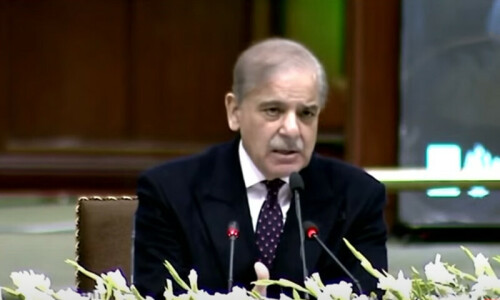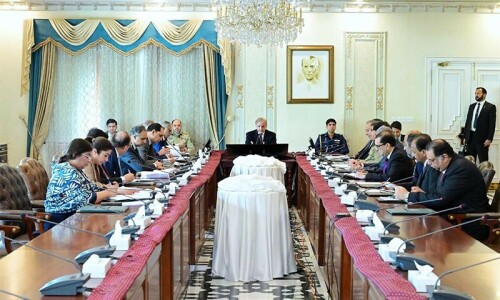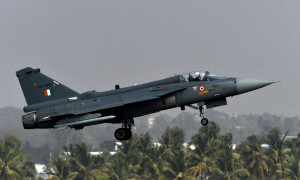Although no functionary of the former government has been accused of complicity in the murder, the 65-page report has blamed Pervez Musharraf's government, particularly its police and security network of negligence.
It said the present government was free to carry out further investigations and bring those responsible for the crime as well as negligence to justice.
Report of the UN Commission of inquiry of the assassination of Benzair Bhutto
The three-member panel, headed by Chilean ambassador Heraldo Munoz, submitted its report to UN Secretary General Ban ki Moon on Thursday afternoon. He immediately handed it over to Pakistan's UN envoy Hussain Haroon. However, at the eleventh hour Islamabad decided against making its content public before the findings were studied by senior government officials.
Senior officials of Pakistan's mission had earlier indicated that on receiving the UN Commission's report Ambassador Hussain Haroon would share its findings at a news conference.
However, the media event was postponed at the last minute and it was announced that the findings would now be made public in Islamabad by senior members of the government. Still, the UN secretariat decided that it was too important a report to be kept hidden from the public, and at a hurriedly arranged news conference made the report public.
As people in Pakistan waited eagerly for the release of the findings of the UN probe body, security in the country was beefed up, with United Nations mission in Pakistan advising its staff to act cautiously and avoid going to public places.
Though details contained in the report were not known, UN officials stationed in Pakistan were not prepared to take any chances, fearing a possible backlash.
Pakistani officials said police and paramilitary troops were on high alert, and security was being stepped up outside the foreign missions and UN office, but only as a precautionary measure.
In Islamabad, a senior official earlier said there were no startling revelations in the report. The 3-member probe body headed by the Chilean ambassador to the UN has mostly relied on evidence collected by talking to the same set of officials and other people who had already made their views public. Analysts say its hard to believe that the Un panel would clear state its views on any major conspiracy involving state or non-state actors in the assassination.
The UN panel was to hand over its report on March 30 but on the request of the Pakistani authorities it delayed release by two weeks.
An official of the UN told the media in New York that despite this delay no fresh detatils were inserted into the report.
• UN probe was “hampered” by Pakistani intelligence
• Police failure to probe the assassination “deliberate”
• Security arrangements were “fatally insufficient”
• Several conspiracy theories have been circulating since the assassination
• Need for criminal investigation to look into the role of Al Qaeda, Taliban, and what is known in Pakistan as “establishment”
• Declaration by government that Benazir was killed by a hatch of the vehicle, and that Baitullah Mehsud was responsible were premature, and before proper investigation
• Hosing of the area of bomb blast and failure to conduct post-mortem badly affected investigation. Officials and their superior responsible
• Responsibility of the present government to carry out serious investigation to bring the conspirator and perpetrator of the crime to justice.











































